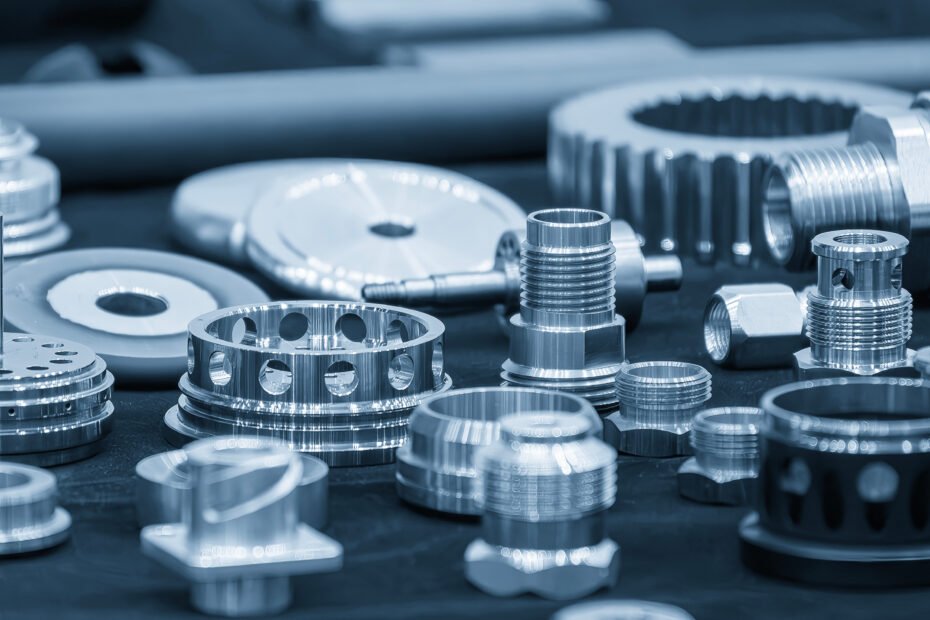Imagine working in an industry where a fraction of a millimeter could mean the difference between success and failure. In high-precision fields like aerospace, the oil and gas industry, medical device manufacturing, and semiconductor production, accuracy isn’t just important—it’s everything. That’s where precision rotating equipment shines.
Rotating devices are the unsung heroes that ensure consistency in rotating speeds, efficiency, and perfection in processes where even the tiniest deviation is unacceptable.
But why are they so critical? And how do they elevate precision to the next level? Read on to find out.
They Ensure Unmatched Precision in Manufacturing
You can’t afford errors when crafting turbine blades, surgical tools, or microchips.
Rotating equipment pieces made by reputable manufacturers, such as rotary stages and indexing tables, provide a full range of motion that can be controlled and repeated—eliminating human error. Need a part machined to within microns? A high-quality rotary system ensures every cut, drill, or polish is flawlessly aligned.
Think of Computer Numerical Control (CNC) machining. Without a precise range of motion, multi-axis milling would be impossible. These rotating equipment let you achieve complex geometric interpolation with tight tolerances to ensure every component meets exact specifications.
Rotation Equipment Boosts Efficiency and Productivity
Time is money, especially in high-volume production. Manual repositioning slows you down, but automated rotation equipment tools streamline workflows. Instead of stopping to adjust a workpiece, the machine rotates it seamlessly while cutting, welding, or inspecting.
For example, in automotive manufacturing, robotic arms with rotary actuators assemble parts faster and do coating work better than any human could. The result? Faster turnaround, lower labor costs, and higher output—without sacrificing quality.
Precise Turning and Rotating Devices Improve Quality Control and Inspection
Defective parts can cost millions in recalls or, worse, endanger lives. Rotation equipment plays a key role in inspection systems. Such tools allow cameras and sensors to scan every angle of a component thanks to their impeccable range of motion. In medical device production, for instance, a rotary stage might spin a catheter under a high-resolution camera. This is done to catch microfractures invisible to the naked eye.
Beyond catching physical defects, modern inspection and production systems are increasingly connected, meaning that data integrity and device software can affect patient safety as much as mechanical tolerances. Integrating cybersecurity into the manufacturing and testing workflow—through threat modeling, vulnerability assessments, and targeted penetration testing—helps ensure devices not only meet dimensional specifications but also satisfy FDA and global guidance. For manufacturers wrestling with these requirements, partnering with a specialized provider such as medical device cyber security company can streamline premarket submissions and postmarket risk mitigation. That combined focus on precision and secure design protects patients and preserves product reliability.
They Enable Advanced Automation and Robotics
The future of manufacturing is automated, and rotation devices are at the heart of this shift. That’s all made possible thanks to their ergonomic design, superb load capacity and power transfer, and so on.
Collaborative robots (cobots) use rotary joints for fluid, human-like motion. Automated guided vehicles (AGVs) that can be operated by a digital controller remotely rely on precision steering systems to navigate factories.
Even in labs, robotic sample handlers use rotary modules to position test tubes with perfect accuracy.
The more precise the rotation, the more reliable the automation—reducing downtime and maximizing uptime.
Rotating Equipment and Tools Support Innovation in Emerging Tech
From 3D printing to quantum computing, cutting-edge tech demands ultra-precise movement. Additive manufacturing uses rotary beds to build complex, layered structures. Laser engraving systems rotate materials for intricate, consistent patterning.
In semiconductor fabrication, wafer-handling robots must position silicon discs with nanometer precision. Without advanced rotation tech, next-gen innovations would stall.

They Reduce Wear and Tear on Equipment
Misalignment doesn’t just hurt precision—it damages machinery. Poorly positioned parts cause vibration, friction, and premature wear. Precision rotation devices distribute loads evenly, extending the lifespan of expensive equipment.
For instance, in heavy industries like steel rolling, robust rotary bearings ensure smooth operation under extreme stress. Less downtime means higher profits.
They Enhance Safety in Critical Applications
In hazardous environments—like nuclear facilities or chemical plants—remote-controlled rotation devices minimize human exposure. Robotic arms with rotary actuators handle toxic materials, while inspection bots navigate confined spaces.
Even in surgery, motorized rotation aids in minimally invasive procedures, reducing risk and improving outcomes. Safety and precision go hand in hand.
They Offer Versatility Across Industries
One size doesn’t fit all, but rotation devices adapt. Whether you need slow, precise adjustments (like in telescope positioning) or rapid, high-torque spins (like in industrial mixers), there’s a solution. Moreover, reliable pneumatic mixers, for instance, demonstrate how versatile equipment can meet the demands of multiple industries, ranging from laboratories to heavy-duty manufacturing.
Furthermore, modular designs allow customization, so the same core technology serves aerospace, defense, pharmaceuticals, and more.
They Future-Proof Your Operations
Investing in high-end rotation tech isn’t just about solving today’s problems—it’s about staying competitive. As tolerances tighten and automation grows, outdated systems will hold you back.
Early adopters gain an edge, whether through AI-integrated smart rotators or IoT-enabled predictive maintenance. The right device today prepares you for tomorrow’s challenges.
They Deliver a Return on Investment (ROI)
Indeed, precision rotation systems require upfront investment; nonetheless, they pay off.
Fewer defects mean less waste. Next, faster cycles mean higher output. That’s highly beneficial for manufacturing large quantities of merchandise like colored golf tees for mass consumption. Finally, longer equipment life means lower replacement costs. When you calculate them all, the ROI speaks for itself.
To Conclude
In high-stakes industries, there’s no room for error. Rotation devices provide the accuracy, speed, and reliability needed to stay ahead. Whether you’re machining a jet engine component, inspecting a life-saving implant, or ensuring manufacturing accuracy as a product manager, the right rotary solution makes perfection possible.
Don’t leave precision to chance. Invest in rotation technology—and watch your quality, efficiency, and innovation soar.

